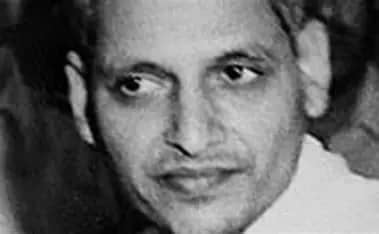Yesterday, my friends were locked in a fierce debate over Nathuram Godse. One argued he was a terrorist, while the other defended him as a slayer of evil. I chose not to intervene, but their clash of ideologies sparked a question in my mind: What truly distinguishes a murderer, an assassin, a terrorist, and a slayer?
Plain English offers a helpful starting point. A murderer kills in a moment of dispute or passion. An assassin executes a targeted killing, often for a fee or a political agenda. A terrorist inflicts fear through indiscriminate violence to achieve an ideological goal. A slayer kills for the greater good, to save a person or a society. So, where does Nathuram Godse fit in?
Nathuram Godse. The name itself is charged with controversy, instantly evoking the assassination of Mahatma Gandhi. We all know the story: the man who shot the father of the nation at point-blank range. He was tried, convicted, and hanged. The case seems closed. A killer. But what if the story is more complicated?
In a deep thinking, I dug into the nuances of Godse’s actions, challenging the simple labels often applied to him. It’s a journey into the heart of a historical paradox: How do we classify a man who committed a heinous crime but did not fit the traditional defination of a murderer?
Let’s begin with the basics. Was Godse a killer? Absolutely. He took a life, and he never denied it. The law is clear on this, and he deserved to be hanged—not for his ideology, but for his actions. The foundational principle of any just society is that you cannot take another person’s life, regardless of how noble you believe your cause to be.
How do we label him? This is where the deliberation gets interesting, because Godse’s actions resist easy classification. Was he a terrorist? The common understanding of a terrorist involves indiscriminate killing to create widespread fear and chaos. Godse’s act, however, was not random. He had one specific target: Mahatma Gandhi. He did not harm the crowd present at the scene. This single, deliberate act of killing suggests a different classification. He wasn’t a random agent of chaos; he was a political killer with a specific target.
But was he an assassin? An assassin is typically defined by a targeted political killing, but also by the act of trying to escape and evade justice. This is where Godse’s story deviates. After firing the shots, he made no attempt to flee. He willingly surrendered, making it clear he had a message to deliver, not a crime to conceal. His willingness to accept the death penalty makes it hard to fit him into the conventional defination of an assassin.
And a slayer? As you noted, this term is reserved for an act of heroism or sacrifice for the greater good. While Godse himself may have believed he was a slayer—sacrificing himself to save India from Gandhi’s perceived policies—this is a viewpoint that is both deeply subjective and highly contentious. Labelling him a slayer would imply an endorsement of his cause, which is a dangerous and inappropriate conclusion to draw.
Perhaps the most baffling part of his story is his court statement. After the assassination, he didn’t plead for mercy. Instead, he presented a 92-page statement justifying his actions. The words were so powerful and articulate that the government temporarily banned its publication, fearing it could incite communal hatred. The judge, in a trial meant to determine guilt, found no factual errors in Godse’s reasoning. This doesn’t mean the judge agreed with him; it simply means the legal framework of the court was not designed to debate ideology.
The final, unsettling piece of the puzzle is the paradox of his last moments before the shots were fired. He reportedly bowed and touched Gandhi’s feet—a gesture of respect that seems utterly incompatible with the act he was about to commit. This detail suggests a profound conflict within Godse, hinting that his actions were not driven by simple hatred or personal gain. He was a man willing to sacrifice his own life to end another’s, driven by a deeply held, albeit misguided, conviction.
So, where does that leave us?
He was undoubtedly a killer. He committed a heinous act that deserves to be condemned and punished to the fullest extent of the law. But the other labels feel incomplete. He was a killer who operated like a political assassin but chose the path of a martyr, all while seeing himself as a slayer. Ultimately, Godse’s legacy is one of moral and historical ambiguity, a question mark on the pages of history that each of us must answer for ourselves.

